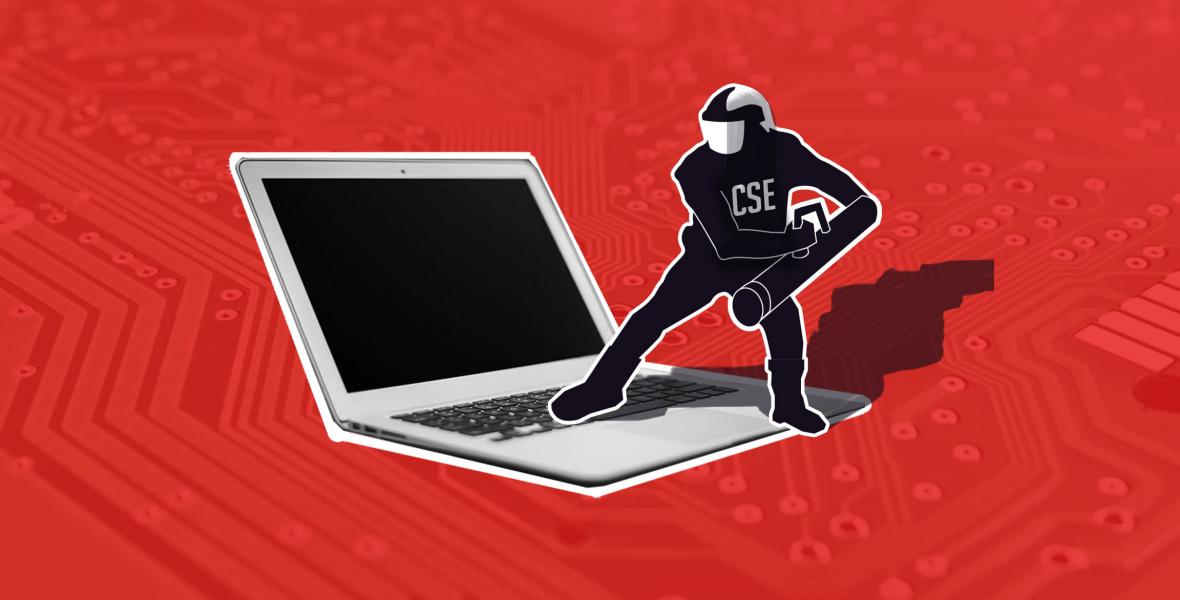TAKE ACTION NOW!
Thank you to The Ken and Debbie Rubin Public Interest Advocacy Fund for their generous donation towards this project as well as our donors and Patrons for their continuing support of our work. Wanna see more webcomics from us? You can support our work with a one-time donation or through Patreon! Thank you!
Sources:
Frame 4: https://www.lawtimesnews.com/archive/extradition-law-needs-reconsideration/262925
Frame 5: https://www.canadianlawyermag.com/news/opinion/canadas-extradition-process-is-broken/275138; https://www.canlii.org/en/on/onsc/doc/2011/2011onsc337/2011onsc337.html (para 85); https://www.policyalternatives.ca/publications/monitor/no-evidence-no-problem; https://www.hrw.org/report/2008/07/01/preempting-justice/counterterrorism-laws-and-procedures-france
Frame 6: https://www.cbc.ca/news/opinion/hassan-diab-1.4823570
Frame 7 & 8: https://youtu.be/5ILF95IFlTc?t=2843
Frame 11: https://www.cbc.ca/news/canada/ottawa/hassan-diab-france-judge-release-1.3849806
Frame 12: https://www.cbc.ca/news/politics/hassan-diab-extradition-france-1.5226033
Frame 15: https://www.cbc.ca/news/politics/hassan-diab-france-terrorisminvestigation-1.4614855
Frame 16: https://www.cbc.ca/news/politics/hassan-diab-france-evidence-1.4714307
Frame 17: https://www.cbc.ca/news/politics/hassan-diab-france-terrorisminvestigation-1.4614855
Frame 18: https://www.justice.gc.ca/eng/rp-pr/cj-jp/ext/01/index.html; http://www.justiceforhassandiab.org/segal-report-does-nothing-to-prevent-future-wrongful-extraditions
Frame 19: https://www.advocatedaily.com/dr—gary-botting-public-inquiry-needed-into-professors-extradition-botting.html; http://iclmg.ca/diab-extradition-review/
Since you’re here…… we have a small favour to ask. Here at ICLMG, we are working very hard to protect and promote human rights and civil liberties in the context of the so-called “war on terror” in Canada. We do not receive any financial support from any federal, provincial or municipal governments or political parties. You can become our patron on Patreon and get rewards in exchange for your support. You can give as little as $1/month (that’s only $12/year!) and you can unsubscribe at any time. Any donations will go a long way to support our work. |

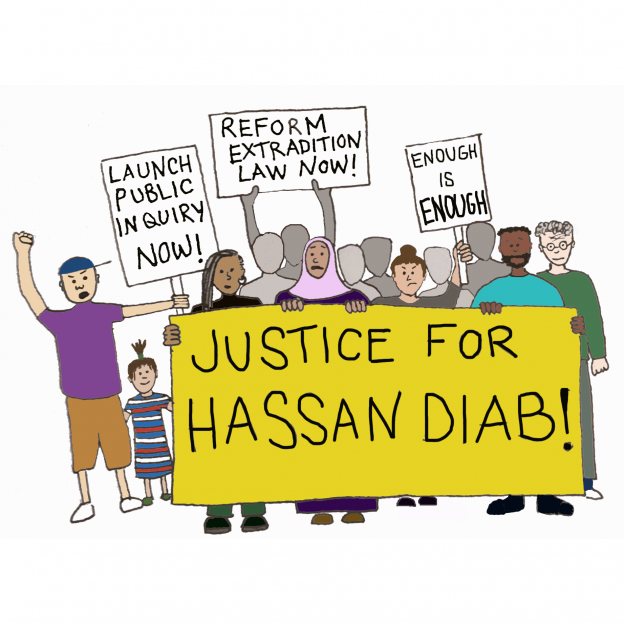
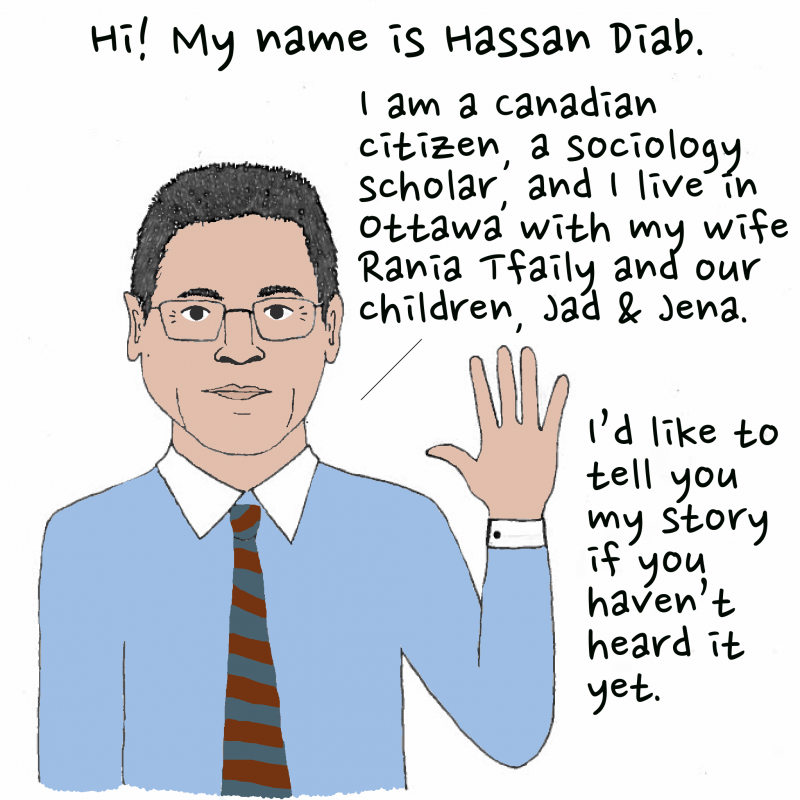
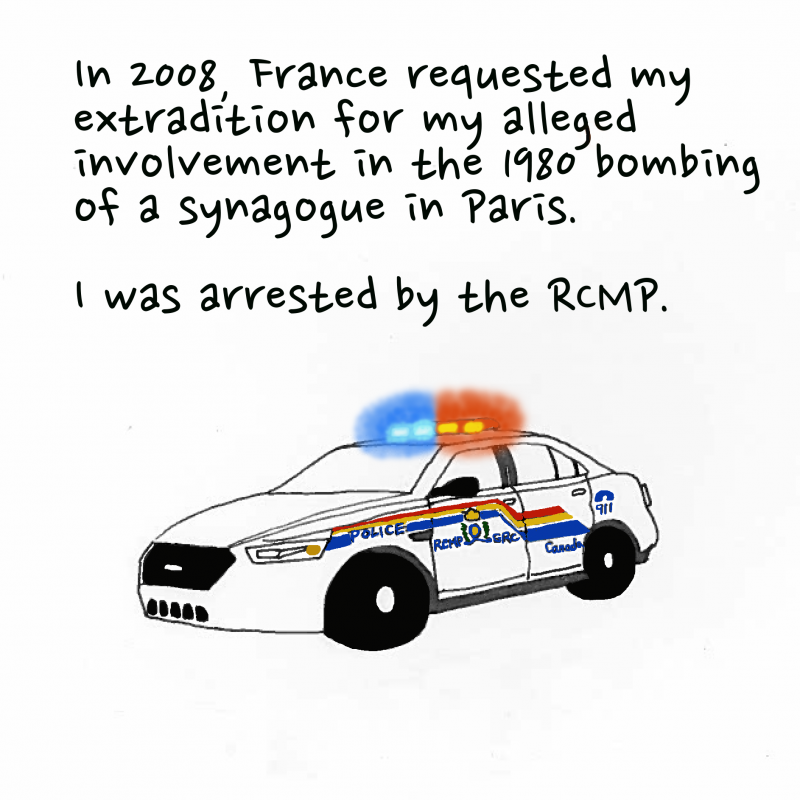
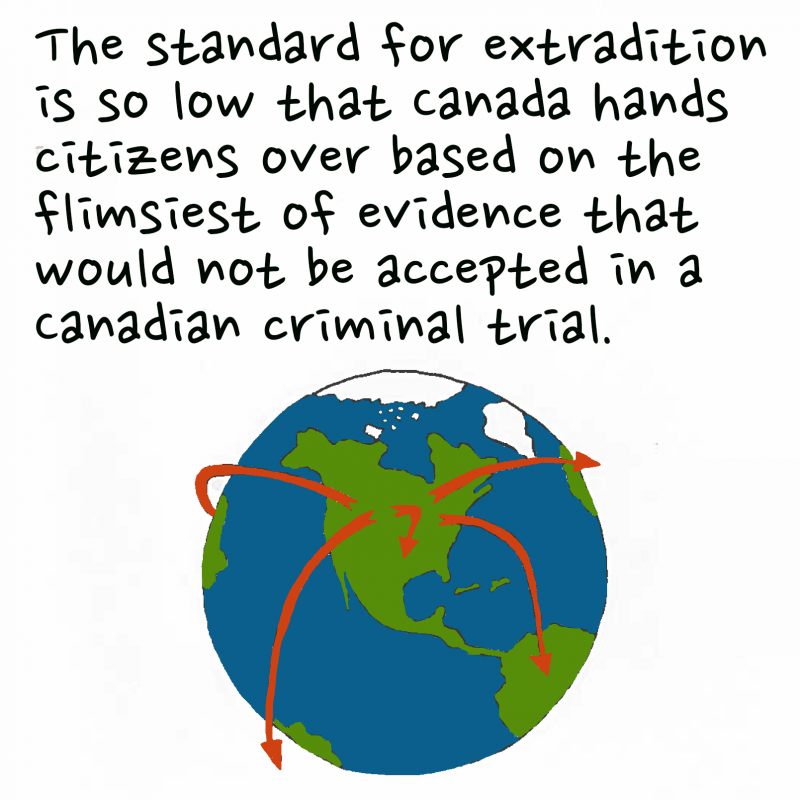
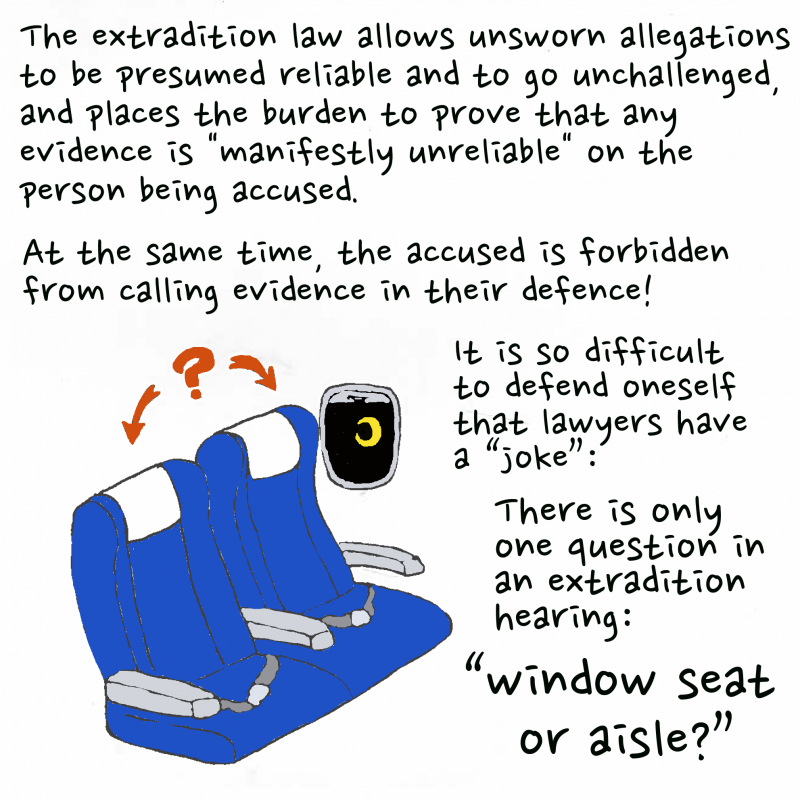
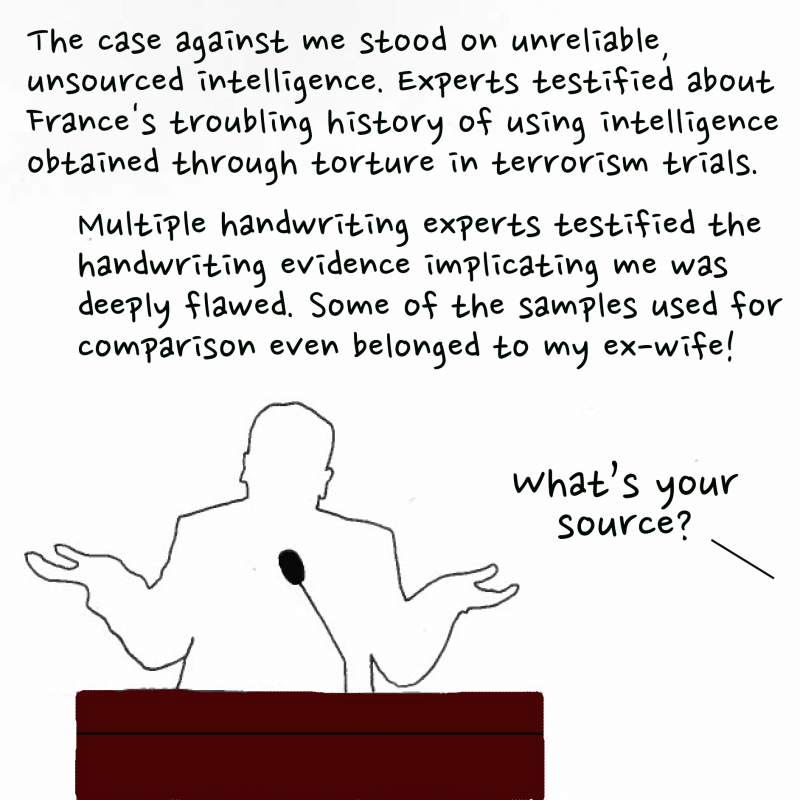
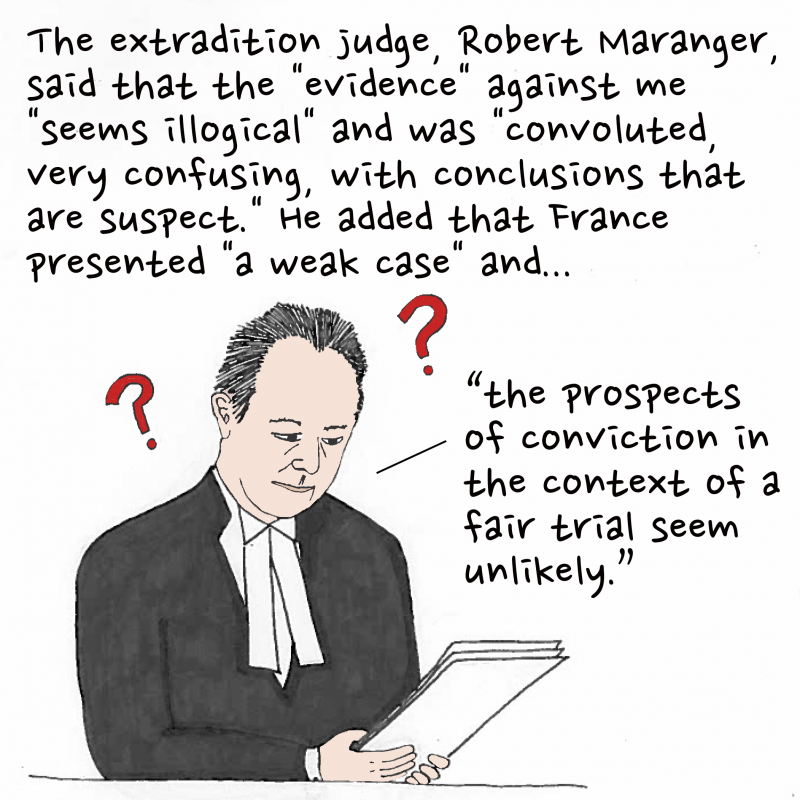
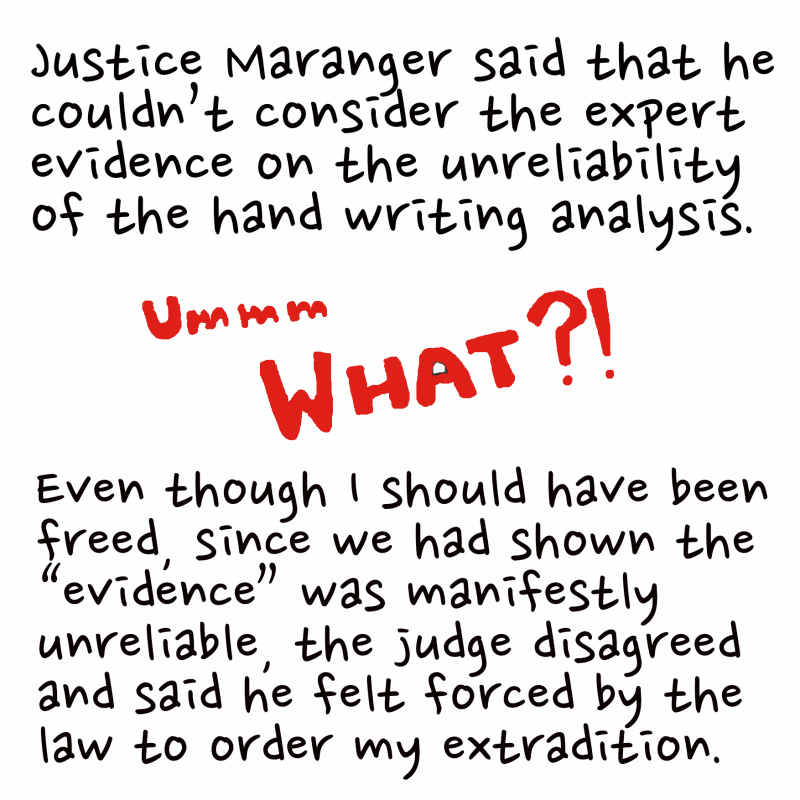
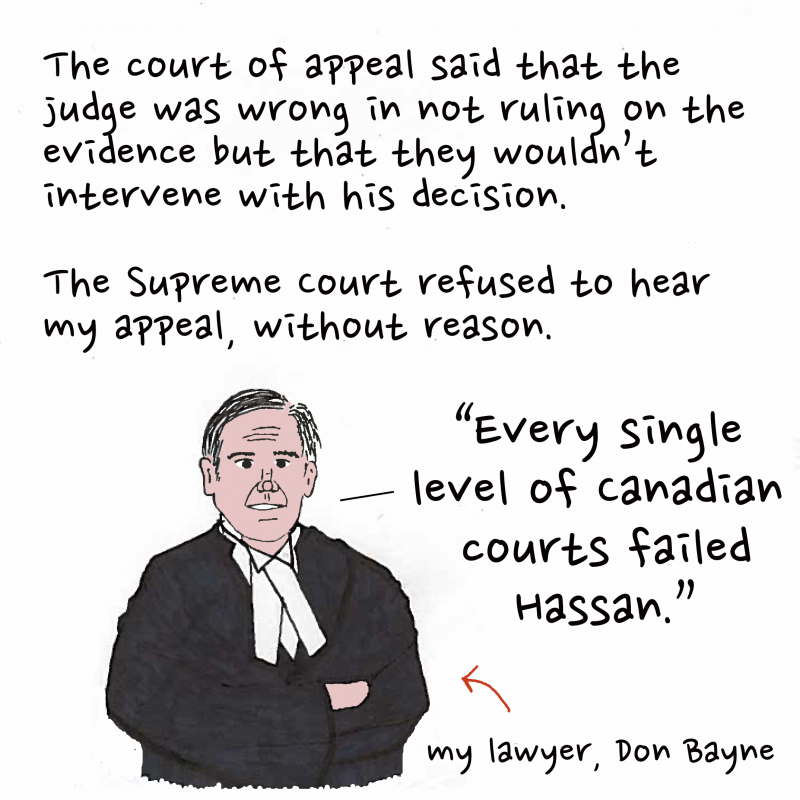
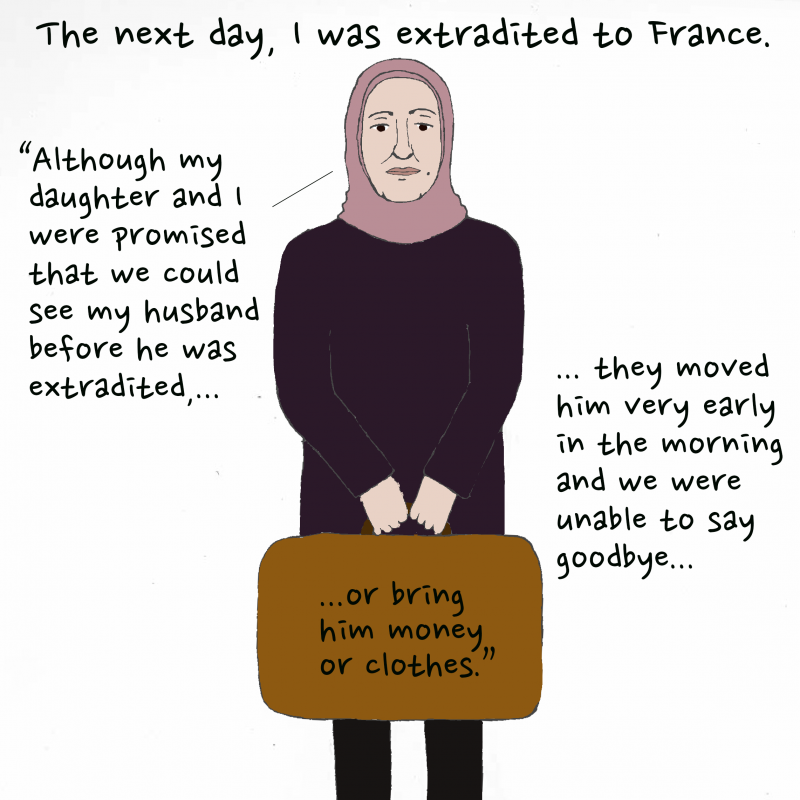
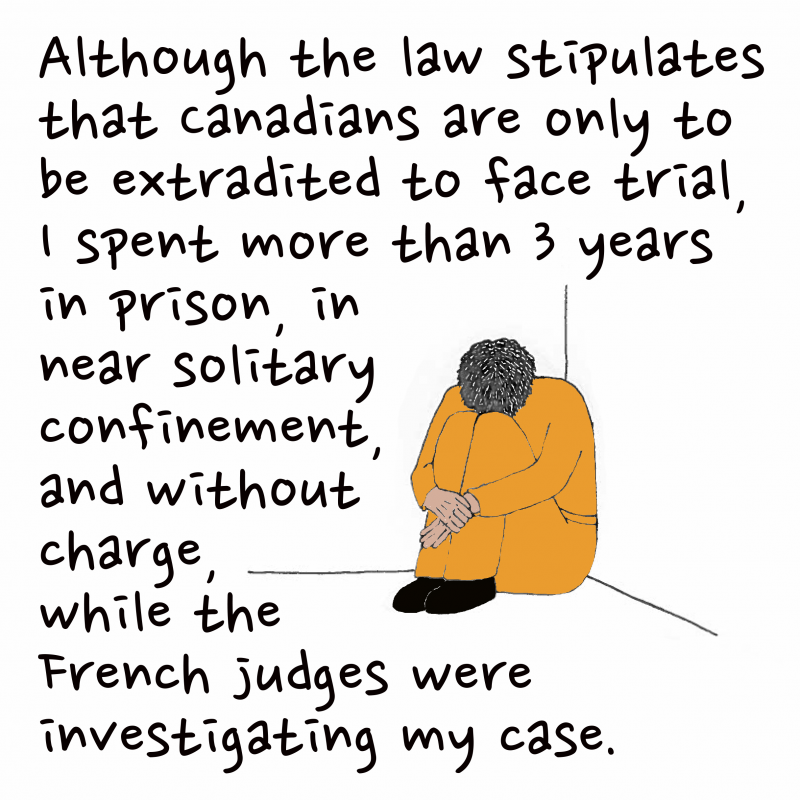
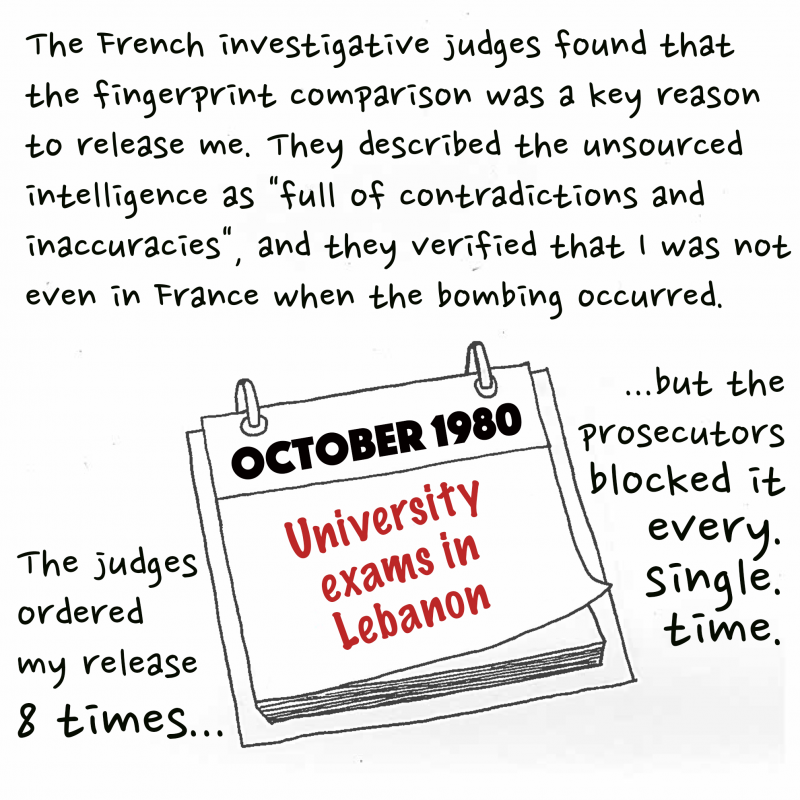
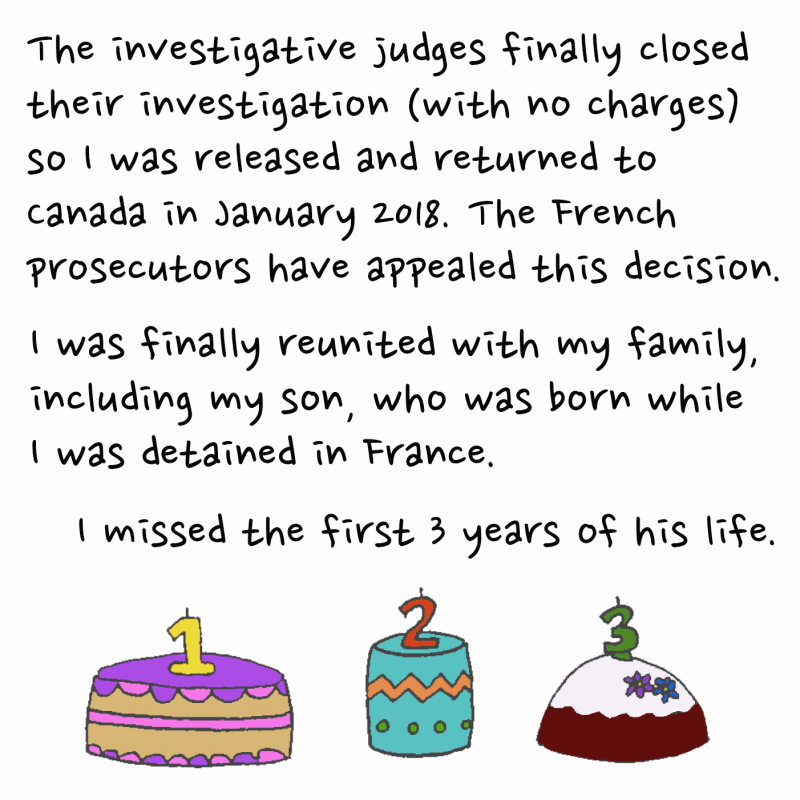
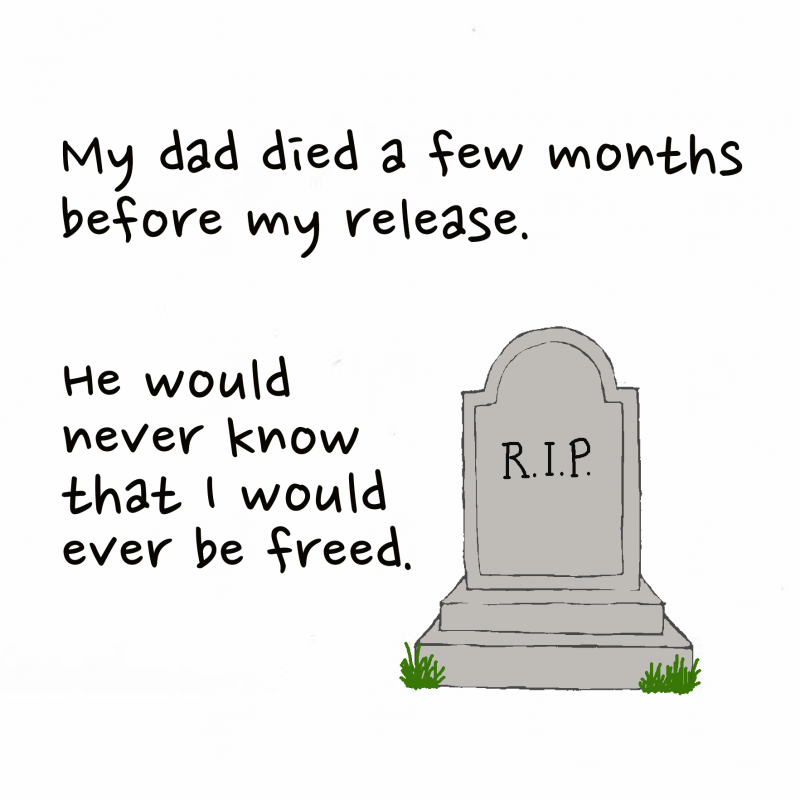
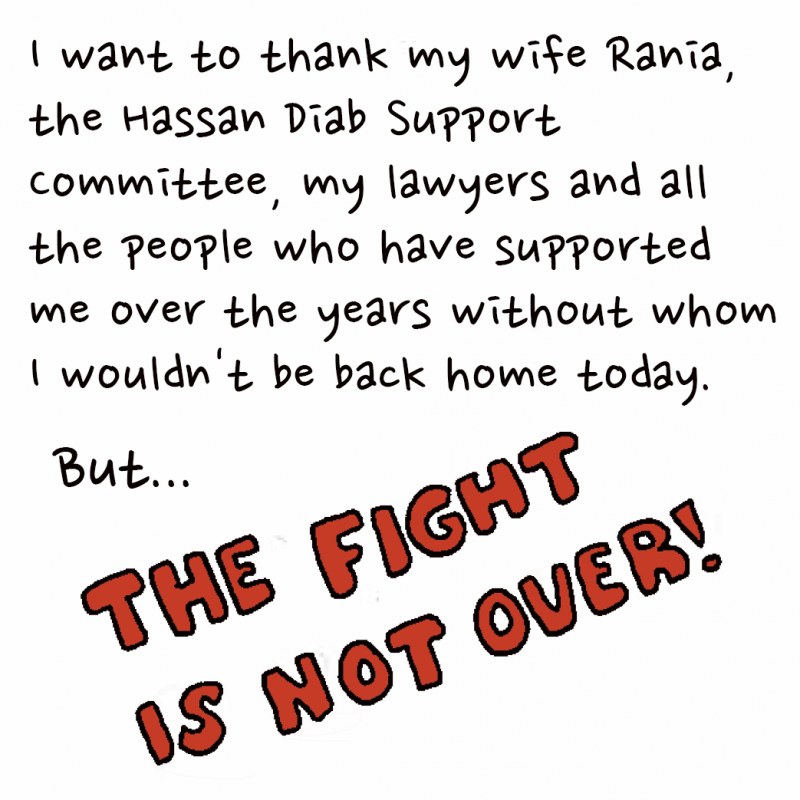
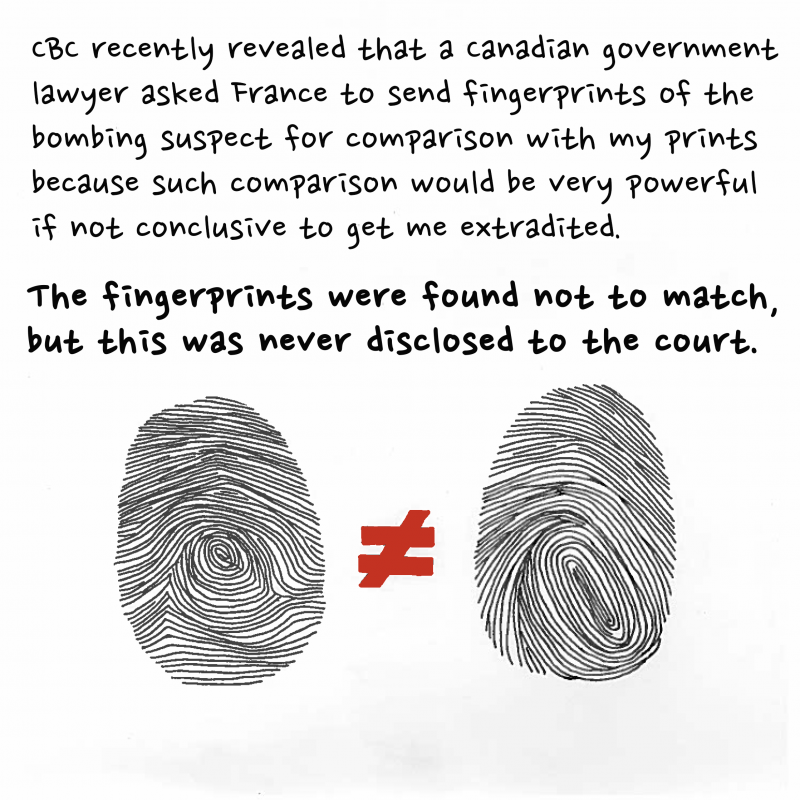
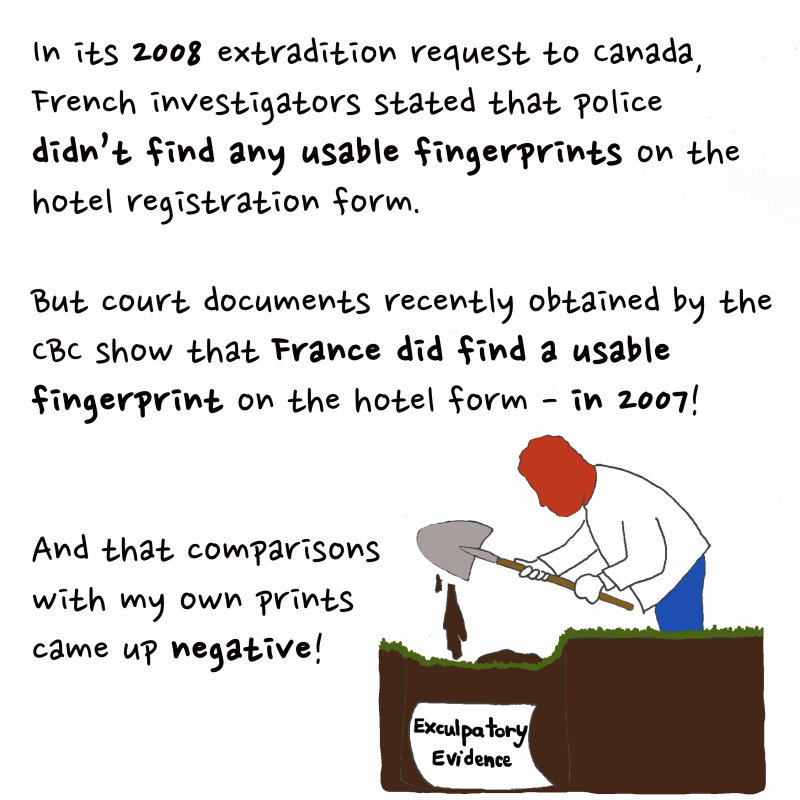
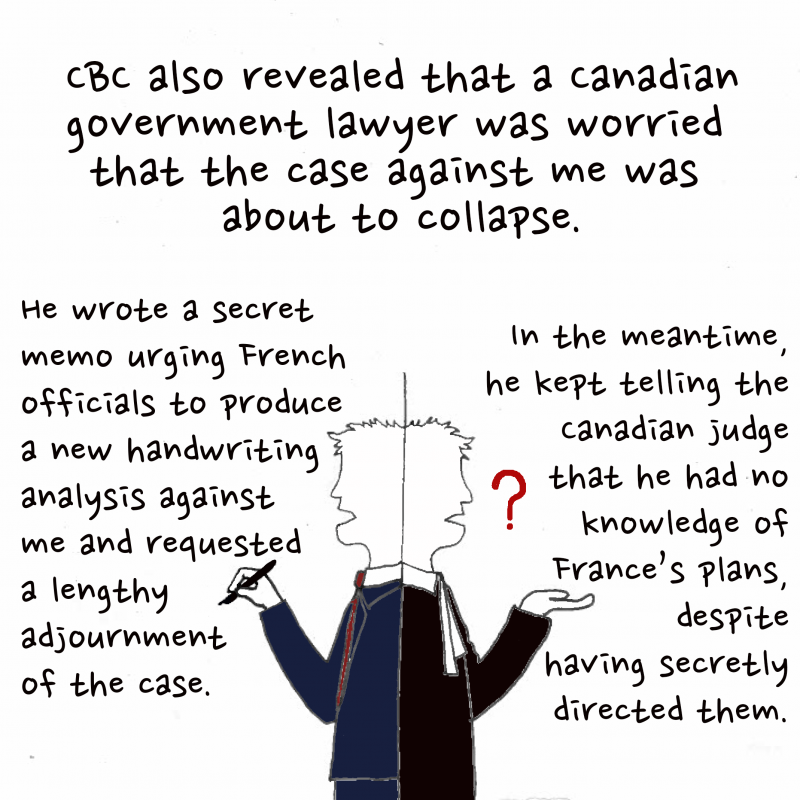
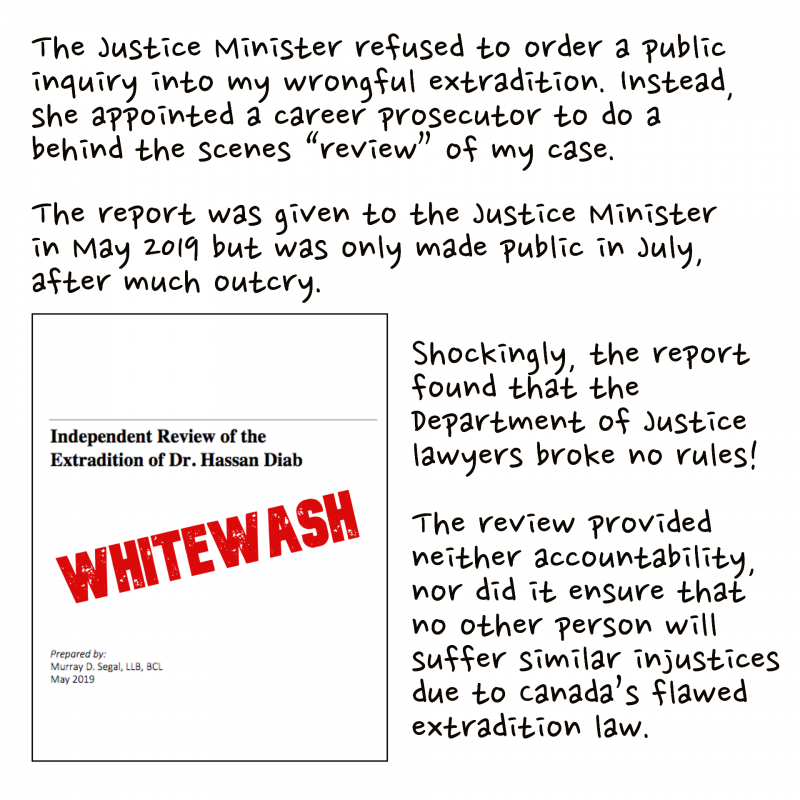
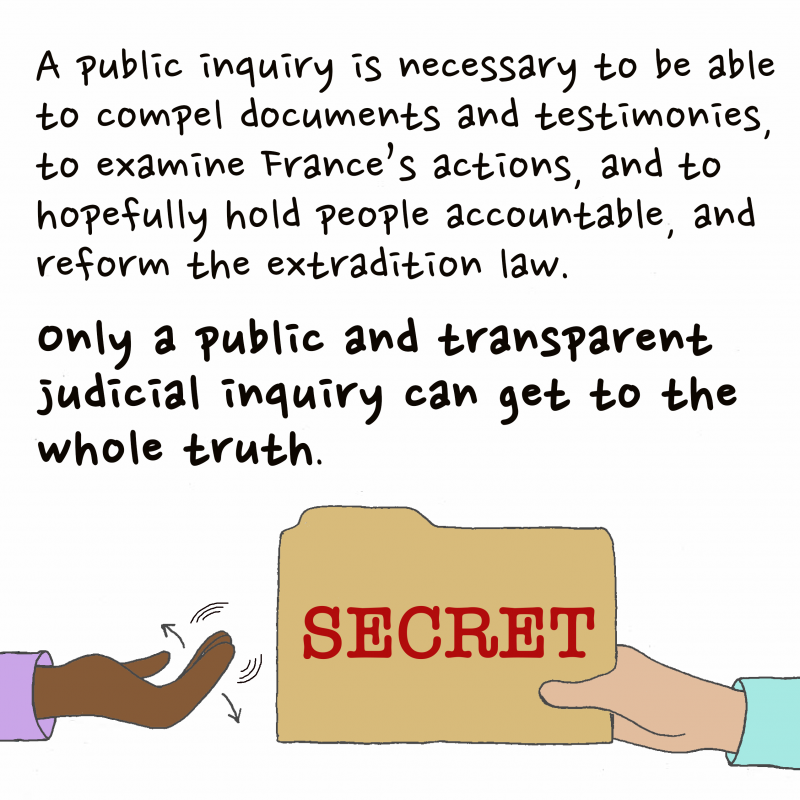
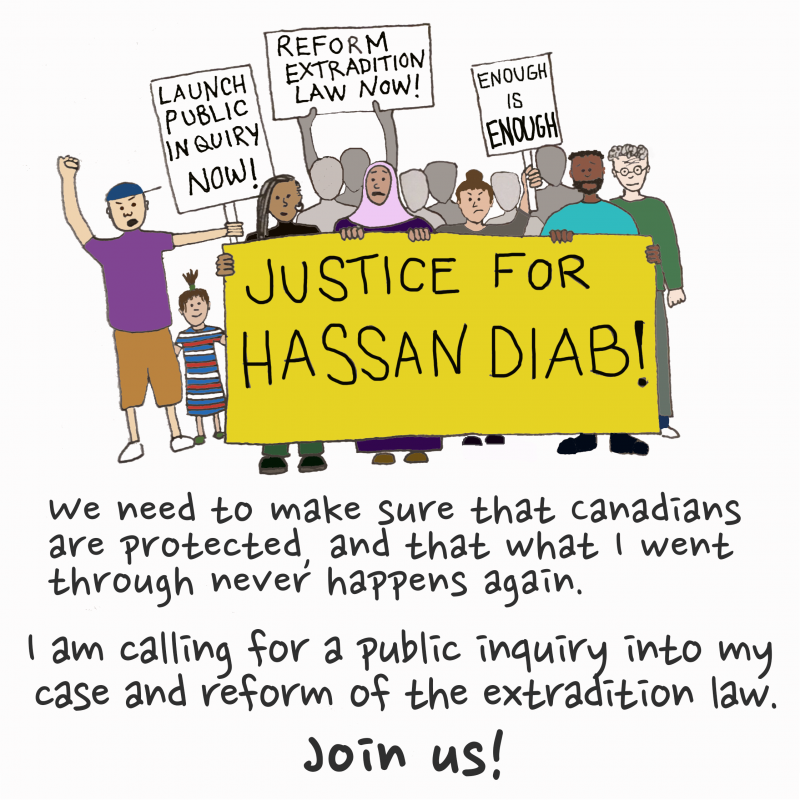


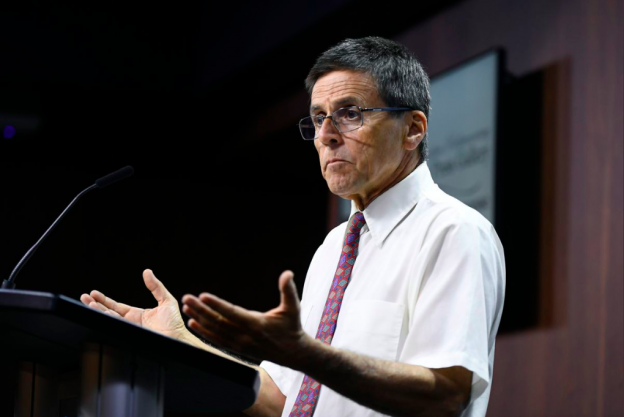
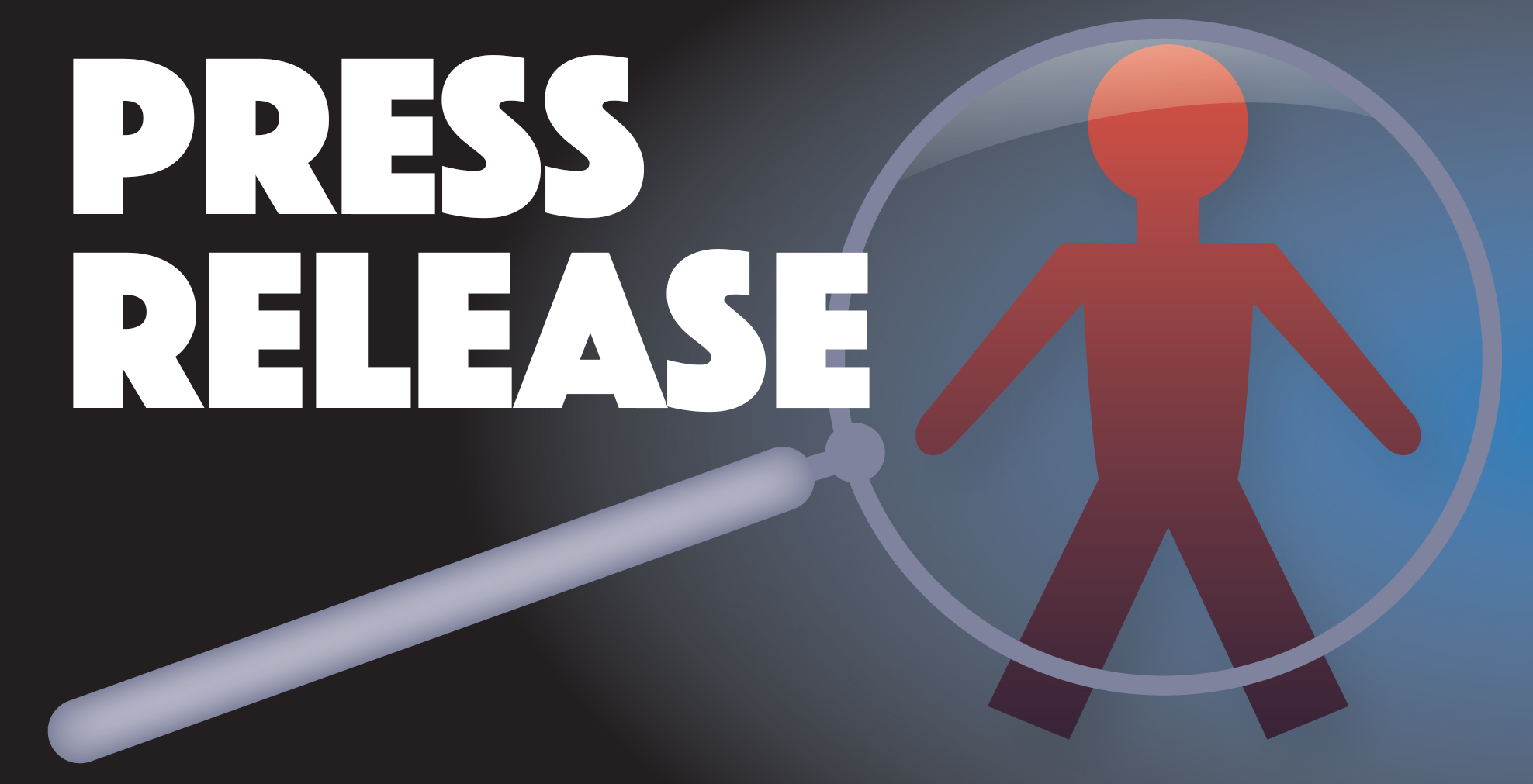 August 9, 2019 (Ottawa)—The International Civil Liberties Monitoring Group (ICLMG) is deeply disappointed with the findings of the external review into the extradition and detention without trial in France of Dr. Hassan Diab. The review was commissioned by the Department of Justice and conducted by Murray Segal, the former Deputy Attorney General of Ontario.
August 9, 2019 (Ottawa)—The International Civil Liberties Monitoring Group (ICLMG) is deeply disappointed with the findings of the external review into the extradition and detention without trial in France of Dr. Hassan Diab. The review was commissioned by the Department of Justice and conducted by Murray Segal, the former Deputy Attorney General of Ontario.